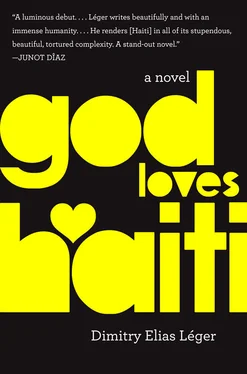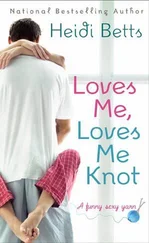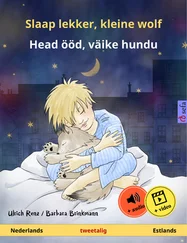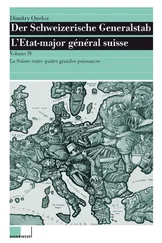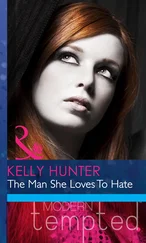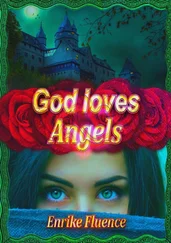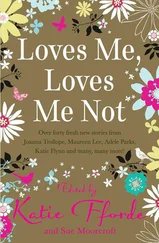Natasha didn’t answer. She wasn’t sure of the answer. She didn’t think it was any of his business either way.
During goudou-goudou, Bobo continued, without prompting, I had just gotten home after work and was standing in my garden with my arms wide open as my girl Diana and my son Nelson ran towards me. They are very affectionate children, like their mother was. Then the ground started shaking and literally threw them at me. I clutched them and we all fell down backwards. The house and the front porch exploded and landed right at my shoes. I tried to get up with the children but I couldn’t. The shaking wouldn’t stop. My feet kept sliding around, like I was ice-skating. I resorted to crawling away from the house with them. The earth hit me in the jaw repeatedly. Heavyweight champion punches, let me tell you. Somehow I managed to make it to my car. The quaking stopped and I drove off wildly. I came to the airport because I knew the President was here.
You mentioned your wife in past tense, Natasha said.
Yes, goudou-goudou killed her. The children told me she was setting the dinner table with Naomi our maid when they ran out of the house to greet me. I hope we leave the country soon. The kids deserve better than this. There’s nothing left for us here.
Natasha avoided directly facing the blues in Bobo’s lingering gaze. But her scrim of aplomb began to fray anyway. Whether it would hold up in the face of the blues of millions of Bobos now existing in Port-au-Prince, only God knew. She didn’t like the odds. She resumed staring at the new Port-au-Prince, which forlornly stared back at her under the mounting blaze of a bright morning sun. The car ambled south on Boulevard Toussaint Louverture. The streets were strangely quiet. The air was still. Traffic was light. The few people Natasha saw were sitting on the sidewalks with ashy arms and legs and dumbfounded looks on their faces. In the direction of Lalue on rue Nazon, she saw the first of dozens of cars buried under the rubble of tumbled buildings. Then she saw her first looter. He was a boy, maybe eight, maybe ten years old. He was reed-thin, with sickly reddish hair. Wearing a red tank top with a white cross on it, blue shorts, and broken sandals, he carried a full-to-the brim grocery bag half his size and shuffled down the sidewalk quickly, anxiously looking over his shoulders. When the crowd following the boy emerged, crackling with noisy and nervous energy and carrying what looked like ill-gotten goods, Natasha, the driver, and Bobo all said merde in unison. To her surprise, Natasha screamed, Stop the car! She opened the car door quickly and told the boy to get in, fast. He did.
You’re crazy, Bobo said. What are you doing? It’s against UN rules to give rides to nonstaff. Get him out of here. He can only bring us trouble.
What are you talking about? Natasha said. You don’t work for the UN. Driver, the boy is strapped in. Go! Go! Go!
And he went. The SUV steamed through potholes and picked up speed even as the crowd came closer. The crowd paid the car no mind. These were the able and the hungry and the newly homeless. Like the first humans, after being cast out of heaven. If they couldn’t eat or drink it, and no one had a gun pointed at them for trying to eat and drink (and, later, fuck), they couldn’t be bothered. Natasha imagined that, like her, each one of them had a loved one in need who was lost in the pulverized concrete wilderness whom they hoped to find and bring medicine, food, water, and love to. She gave the boy the rest of her croissant and OJ. He gulped them without hesitation or saying merci . Nazon was a very wide boulevard. People were everywhere, carrying stuff that was too big and heavy for them to carry. The SUV had to slow down. Threading around looters and invalids was like tiptoeing around on a beach made of broken beer bottles. The boy they had picked up got nervous, squirmed, and, when Natasha reached out to him, bolted out of the moving car, still holding his bounty tightly. He ran back up Nazon without looking over his shoulder.
These are different times, Bobo told Natasha. People don’t want to look back anymore. They can’t. Too scary. They want the future.
The earthquake was like a big bang, Natasha thought. And we’re scattered stars. She was crestfallen. Was she trying to hold on to a world that didn’t exist anymore? As had happened to her often whenever she felt out of touch with where and who she was, she thought of Alain.
A tabula rasa, that’s what I am, she mused. Like the canvases you face every morning, Alain would have said. The car turned west on Avenue John Brown and began crawling toward Champ de Mars and the National Palace, post-earthquake ground zero. The car stopped for long stretches of time. Two days after the quake, the authorities and international helpers hadn’t had enough time to give everyone in the Champ de Mars area tarps and tents and sanitary and security facilities. A new city of homeless and seemingly nationless Haitians had grown around the national monuments. Right now the national square that was Champ de Mars looked like the world’s largest hospital emergency room. It was not the first time that Natasha, a native of nearby Fort National, had seen over a million people congregated there. A greater number ended up there at the end of every float’s parade every February during Carnival. Those teeming, sweaty people, too, were often half-naked and wearing red and blue in the form of red-and-blue handkerchiefs tied around the head, red-and-blue skirts around bouncing hips, red-and-blue shirts draped over the shoulders but rarely worn around glistening, muscular torsos, and red-and-blue capes (capes were big among the men come Carnival time) for shoulders both broad and malnourished. Red and blue were the colors of the national flag, and they were creatively twisted and crafted in all sorts of fashionable ways. This day the red she saw and quickly yearned to forget belonged to the blood of earthquake survivors barely surviving. Blood ran from every body part you could imagine. Rivers of the stuff. Why hadn’t it all dried up by now, oh Lord? Maybe the blood was dry. Maybe it was the open, unbandaged wounds on all those bodies glistening under the hot and bright sun that made the blood look so fucking red. So fresh, so not clean. She saw red, but it was the blue that made her weep. People were crying for help. People were crying from pain. People were crying from grief. People were crying from the sight of other people crying. People cried out of rage. In the front seat, Bobo was horrified and kept talking to the people on the streets to calm his nerves, even though they couldn’t hear him.
Why doesn’t somebody move that dead child’s body away from her crippled mother? he screamed. Can’t they see she can’t move? Can’t they see what seeing what her baby looks like is doing to her?
Natasha saw one tragic tableau after another, and words failed her. She couldn’t emit a single sound. She tried to tell the driver to drive faster, to get her away from a scene by escaping to another street. But the street had disappeared a long time ago. People were everywhere, suffering, not smiling. And they swirled and froze in a constant, random, awesome, and horrible traffic-clogging movie, causing the SUV to move at a glacial pace, if it moved at all, for hours. Natasha felt like a tourist in her own city being guided through an open-air museum of pain and despair. If the driver’s name is Virgil, I’ll kill myself, she thought. Her eyes took in grotesqueries her mind instantly wanted to forget. When she turned her head elsewhere in search of a balm, her eyes invariably landed on an even sadder sight. Then all three of them saw a sizable green garden. Their battered spirits were so grateful to see the color of life free from ruined brown bodies they took a while to notice the caved-in white building looming behind the lawn. The National Palace. It really was destroyed.
Читать дальше
